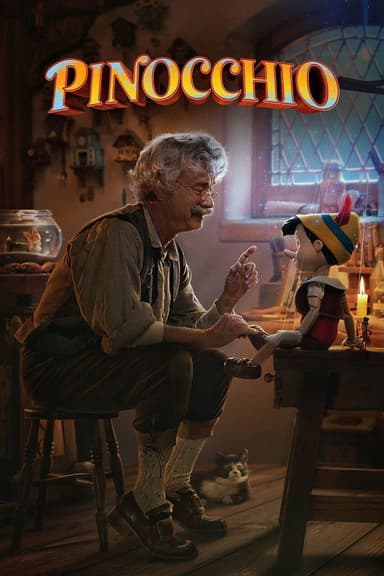
Guillermo del Toro's Pinocchio
2022 • Adventure, Animation, Drama, Fantasy • PG
During the rise of fascism in Mussolini's Italy, a wooden boy brought magically to life struggles to live up to his father's expectations.
Runtime: 1h 57m
Why you should read the novel
Delving into Carlo Collodi's "The Adventures of Pinocchio" offers an authentic journey into the original world of the mischievous wooden boy. The novel unfolds layers of morality, humor, and fantastical escapades that are often glossed over or transformed in film adaptations. Readers experience the story as Collodi envisioned it, full of insightful lessons and complex characters.
Reading the book allows for a deeper understanding of Pinocchio’s development, all beautifully woven with Italian folklore and uniquely imaginative scenarios. The written word provides rich context and nuance, inviting readers to reflect on the core themes of personal growth, honesty, and the human condition. The experience is both timeless and culturally significant, offering more than a simple children’s story.
Furthermore, exploring the source material enables readers to appreciate how subsequent adaptations—including del Toro’s—have reinterpreted and evolved the narrative. The novel stands as a literary masterpiece, giving fans of Pinocchio an opportunity to connect with its origins and the societal influences present at the time of its writing.
Adaptation differences
One of the most noticeable differences between Guillermo del Toro’s adaptation and Collodi's original book is the setting and historical context. The novel is set in a timeless Italian village, while the film takes place in fascist Italy between the World Wars, imbuing the story with political and social undertones absent from the original.
The characterization of Geppetto and Pinocchio also differs significantly. In Collodi's book, Geppetto is portrayed as poor and quick-tempered yet loving, and Pinocchio is primarily mischievous, acting out of self-interest. Del Toro’s film adds layers of grief and loss to Geppetto’s character and depicts Pinocchio as more innocent and naive, exploring themes of mortality and unconditional love.
Magic and the supernatural work differently in the two versions. Collodi’s novel is whimsical, with talking animals and surreal events functioning in a fairy-tale logic. The movie, on the other hand, personifies Death and features supernatural beings rooted in mythological imagery, offering a darker, more philosophical take on the themes of life, death, and destiny.
Finally, the endings contrast in tone and message. Collodi’s story emphasizes moral lessons, culminating in Pinocchio becoming a real boy only after learning responsibility and virtue. Del Toro’s adaptation focuses more on acceptance—of oneself and others—suggesting that transformation is less about conforming to societal ideals and more about love, belonging, and accepting imperfection.
Guillermo del Toro's Pinocchio inspired from
The Adventures of Pinocchio
by Carlo Collodi












